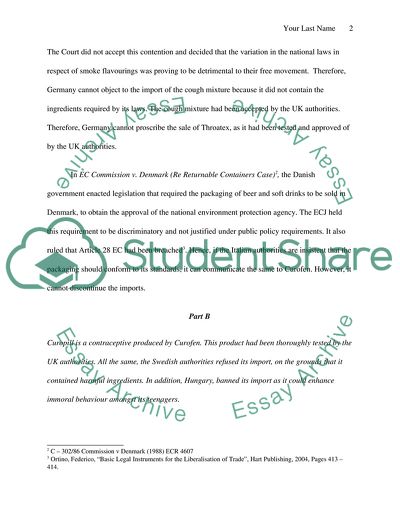Cite this document
(EU Law Free Movement of Goods Coursework Example | Topics and Well Written Essays - 2500 words, n.d.)
EU Law Free Movement of Goods Coursework Example | Topics and Well Written Essays - 2500 words. https://studentshare.org/law/1719338-eu-law-coursework-assessment-part-two
EU Law Free Movement of Goods Coursework Example | Topics and Well Written Essays - 2500 words. https://studentshare.org/law/1719338-eu-law-coursework-assessment-part-two
(EU Law Free Movement of Goods Coursework Example | Topics and Well Written Essays - 2500 Words)
EU Law Free Movement of Goods Coursework Example | Topics and Well Written Essays - 2500 Words. https://studentshare.org/law/1719338-eu-law-coursework-assessment-part-two.
EU Law Free Movement of Goods Coursework Example | Topics and Well Written Essays - 2500 Words. https://studentshare.org/law/1719338-eu-law-coursework-assessment-part-two.
“EU Law Free Movement of Goods Coursework Example | Topics and Well Written Essays - 2500 Words”. https://studentshare.org/law/1719338-eu-law-coursework-assessment-part-two.


